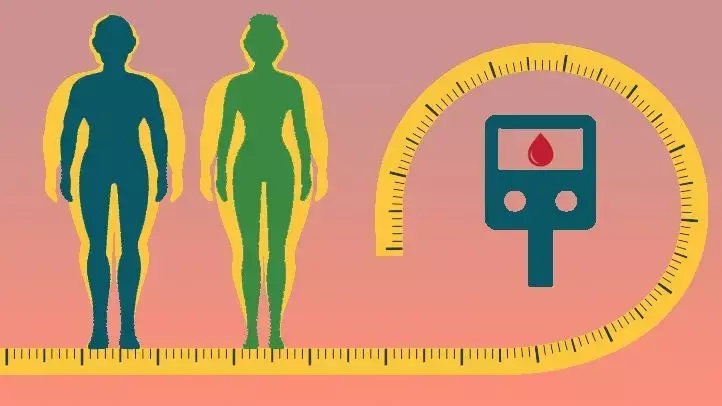- Home
- Medical news & Guidelines
- Anesthesiology
- Cardiology and CTVS
- Critical Care
- Dentistry
- Dermatology
- Diabetes and Endocrinology
- ENT
- Gastroenterology
- Medicine
- Nephrology
- Neurology
- Obstretics-Gynaecology
- Oncology
- Ophthalmology
- Orthopaedics
- Pediatrics-Neonatology
- Psychiatry
- Pulmonology
- Radiology
- Surgery
- Urology
- Laboratory Medicine
- Diet
- Nursing
- Paramedical
- Physiotherapy
- Health news
- Fact Check
- Bone Health Fact Check
- Brain Health Fact Check
- Cancer Related Fact Check
- Child Care Fact Check
- Dental and oral health fact check
- Diabetes and metabolic health fact check
- Diet and Nutrition Fact Check
- Eye and ENT Care Fact Check
- Fitness fact check
- Gut health fact check
- Heart health fact check
- Kidney health fact check
- Medical education fact check
- Men's health fact check
- Respiratory fact check
- Skin and hair care fact check
- Vaccine and Immunization fact check
- Women's health fact check
- AYUSH
- State News
- Andaman and Nicobar Islands
- Andhra Pradesh
- Arunachal Pradesh
- Assam
- Bihar
- Chandigarh
- Chattisgarh
- Dadra and Nagar Haveli
- Daman and Diu
- Delhi
- Goa
- Gujarat
- Haryana
- Himachal Pradesh
- Jammu & Kashmir
- Jharkhand
- Karnataka
- Kerala
- Ladakh
- Lakshadweep
- Madhya Pradesh
- Maharashtra
- Manipur
- Meghalaya
- Mizoram
- Nagaland
- Odisha
- Puducherry
- Punjab
- Rajasthan
- Sikkim
- Tamil Nadu
- Telangana
- Tripura
- Uttar Pradesh
- Uttrakhand
- West Bengal
- Medical Education
- Industry
Biliopancreatic diversion shows better biochemical results than conventional therapy in Obese T2DM patients

Some studies have shown that metabolic/bariatric surgery is far more efficient than the traditional pharmacological conservative therapies in achieving and maintaining glycemic control among type 2 diabetic (T2DM) severely obese patients.
However, a recent study suggests biliopancreatic diversion (BPD) should be used with caution as a metabolic procedure in the treatment of T2DM in overweight or class 1 obese patients. The study findings were published in the journal Obesity Surgery on January 10, 2022.1
Previous studies demonstrate that in class 1 obese and overweight patients, bariatric/metabolic surgery is followed by a T2DM remission or by a noticeable improvement of glucose control in a significant number of operated subjects, the results being overall better than those observed in T2DM individuals treated by medical/behavioural therapy.
Dr Gian Franco Adami and his team recently conducted a study to evaluate the long-term anti-diabetic effects of BPD in overweight or class 1 obese T2DM patients and reported results at 10 years after BPD performed in severely non-obese T2DM patients.
For their study, the researchers included 30 T2DM patients with BMI<35 and investigated them at one, five and ten years after BPD. They further compared the results with those of 30 T2DM patients followed for ten years on pharmacological and/or behavioural conventional therapy. They assessed the anthropometric, biochemical, and clinical records for complications.
Key findings of the study:
- Upon analysis, the researchers found a marked reduction in the mean levels of fasting blood glucose (FBG) and serum glycated hemoglobin (HbA1C) at 1 year after BPD.
- They noted that the values remained slightly above the diabetic range throughout the entire follow-up.
- They observed T2DM remission in about 50% of the cases at 5 and 10 years after the operation.
- However, they noted that 16 patients (53%) developed severe BPD-related complications and ten patients had a surgical revision of the operation.
- They also reported death in the BPD group, one patient for malignant lymphoma and two patients after surgical revision.
- Among the control group, they observed no changes in the diabetic status with FBG and HbA1C mean values higher than those recorded in the BPD patients at any follow-up time.
- They also noted that all T2DM subjects of the control group were alive at the end of the 10-year follow-up.
The authors concluded, "Despite satisfactory long-term metabolic outcomes, these data indicate that BPD should be used with caution as a metabolic procedure in the treatment of T2DM in overweight or class 1 obese patients."
For further information:
DOI: https://doi.org/10.1007/s11695-021-05870-4.
Medical Dialogues Bureau consists of a team of passionate medical/scientific writers, led by doctors and healthcare researchers. Our team efforts to bring you updated and timely news about the important happenings of the medical and healthcare sector. Our editorial team can be reached at editorial@medicaldialogues.in.
Dr Kamal Kant Kohli-MBBS, DTCD- a chest specialist with more than 30 years of practice and a flair for writing clinical articles, Dr Kamal Kant Kohli joined Medical Dialogues as a Chief Editor of Medical News. Besides writing articles, as an editor, he proofreads and verifies all the medical content published on Medical Dialogues including those coming from journals, studies,medical conferences,guidelines etc. Email: drkohli@medicaldialogues.in. Contact no. 011-43720751


